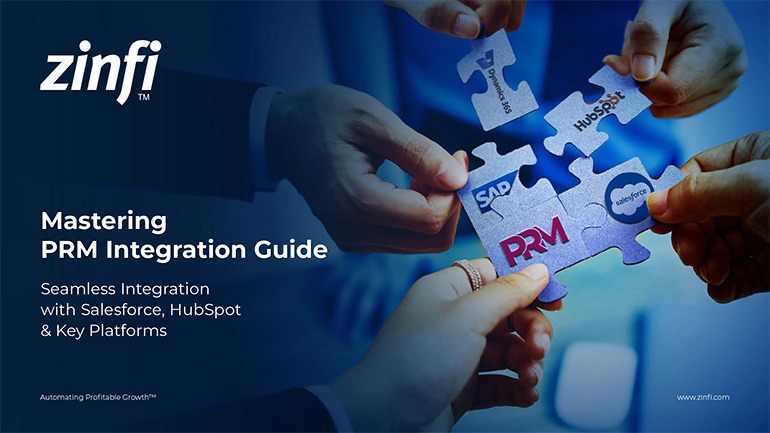Glossary - How to - Channel Management Best Practices
How to Implement Best Practices for Channel Management?
Introduction
Defining Channel Management and Its Role in the Partner Ecosystem
Channel management refers to strategies, processes, and tools businesses use to manage their indirect sales channels, such as distributors, resellers, and affiliates. It is crucial in optimizing revenue streams, ensuring partner success, and maintaining brand consistency across multiple sales touchpoints.
Effective channel management fosters strong relationships between vendors and partners, ensuring mutual growth and profitability. Organizations that implement best practices for channel management can streamline operations, improve communication, and enhance performance across their channel ecosystem.
The Importance of Channel Management in PRM
Partner Relationship Management (PRM) solutions automate and enhance channel management by providing onboarding, training, performance tracking, and communication. With PRM, businesses can leverage data-driven insights to optimize partner engagement and drive sales efficiency.
PRM platforms support best practices for channel management by offering centralized partner portals, automated workflows, and real-time performance analytics. Organizations using PRM can reduce administrative overhead while improving collaboration and transparency among channel partners.
Key Takeaways:
Establish Clear Channel Partner Criteria
Defining clear criteria for selecting and onboarding channel partners ensures alignment with your business objectives. Factors to consider include:
- Market reach and expertise
- Financial stability
- Commitment to joint success
- Technical capabilities
Using PRM solutions, businesses can automate partner assessments, ensuring a seamless and structured onboarding process.
Implement a Structured Onboarding and Training Program
A well-defined onboarding process enhances partner engagement and productivity. Essential steps include:
- Providing comprehensive training materials
- Offering certifications and assessments
- Establishing clear expectations and success metrics
PRM platforms facilitate automated training modules and tracking, ensuring partners are well-equipped to sell and support your products effectively.
Develop a Strong Incentive and Rewards Program
Businesses should implement structured incentive programs to motivate and retain channel partners, including:
- Performance-based rebates
- Tiered rewards structures
- Exclusive marketing support
PRM systems help businesses manage and track incentive programs efficiently, ensuring timely reward distribution and transparency.
Leverage Data-Driven Performance Tracking
Tracking partner performance through key performance indicators (KPIs) enables data-driven decision-making. Important metrics include:
- Sales volume and growth trends
- Lead conversion rates
- Partner engagement levels
With PRM solutions, businesses gain real-time insights into partner performance, allowing for proactive strategy adjustments and improved ROI.
Foster Strong Communication and Collaboration
Open and transparent communication strengthens channel relationships and minimizes misunderstandings. Best practices include:
- Regular partner meetings and webinars
- A centralized partner portal for resources and updates
- Feedback loops to improve partner experiences
PRM platforms streamline communication through automated notifications, chat integrations, and content repositories.
Summary of Key Takeaways:
- Define clear partner criteria to align with business goals.
- Implement structured onboarding and training to enhance partner productivity.
- Develop incentive programs to drive motivation and engagement.
- Utilize data-driven performance tracking to optimize channel strategies.
- Enhance communication and collaboration through PRM solutions.
Industry-Specific Applications for Channel Management:
- Automotive Manufacturing: Effective channel management in the automotive sector ensures a smooth supply chain, dealer management, and customer support. PRM systems streamline partner training and performance tracking to maintain brand standards and improve sales efficiency.
- Consumer Electronics: In consumer electronics, successful channel management involves coordinating distributors, resellers, and service providers. PRM tools help businesses track partner engagement, manage inventory, and optimize marketing campaigns.
- Energy Production: Energy companies rely on channel partners for equipment distribution and service operations. Implementing best practices ensures consistent branding, compliance, and improved customer satisfaction.
- Financial Services: Banks and insurance providers use channel partners for lead generation and customer acquisition. PRM solutions help manage partner relationships, track referrals, and streamline compliance.
- Food and Beverage: Channel management in the food and beverage industry focuses on distributor efficiency, inventory management, and compliance with safety regulations. A structured PRM system improves distributor coordination and supply chain management.
- Healthcare Services: Healthcare organizations manage various channel partners, including medical device distributors and healthcare providers. Best practices ensure compliance with regulatory standards and enhance service delivery.
- Information Technology: The IT sector relies heavily on VARs (Value-Added Resellers) and MSPs (Managed Service Providers). PRM systems enhance lead distribution, training, and incentive tracking.
- Pharmaceutical Development: Channel management in pharmaceuticals ensures compliance with regulations, distributor training, and optimized inventory tracking.
- Retail Industry: Retail businesses use channel partners for product distribution and customer engagement. PRM platforms help manage partner incentives and promotional activities effectively.
- Telecommunications: The telecom industry leverages indirect sales channels to expand market reach. PRM solutions automate partner onboarding, support ticketing, and performance analysis.
Conclusion:
Implementing best practices for channel management enables businesses to optimize partner relationships, streamline operations, and enhance sales performance. PRM solutions provide the necessary automation and insights to drive channel success across various industries.
Organizations that invest in effective channel management strategies can achieve long-term growth and competitive advantage in their respective markets.
Associated Keywords:
- Channel Partner Management Strategies
- PRM Best Practices
- How to Improve Channel Sales Efficiency















